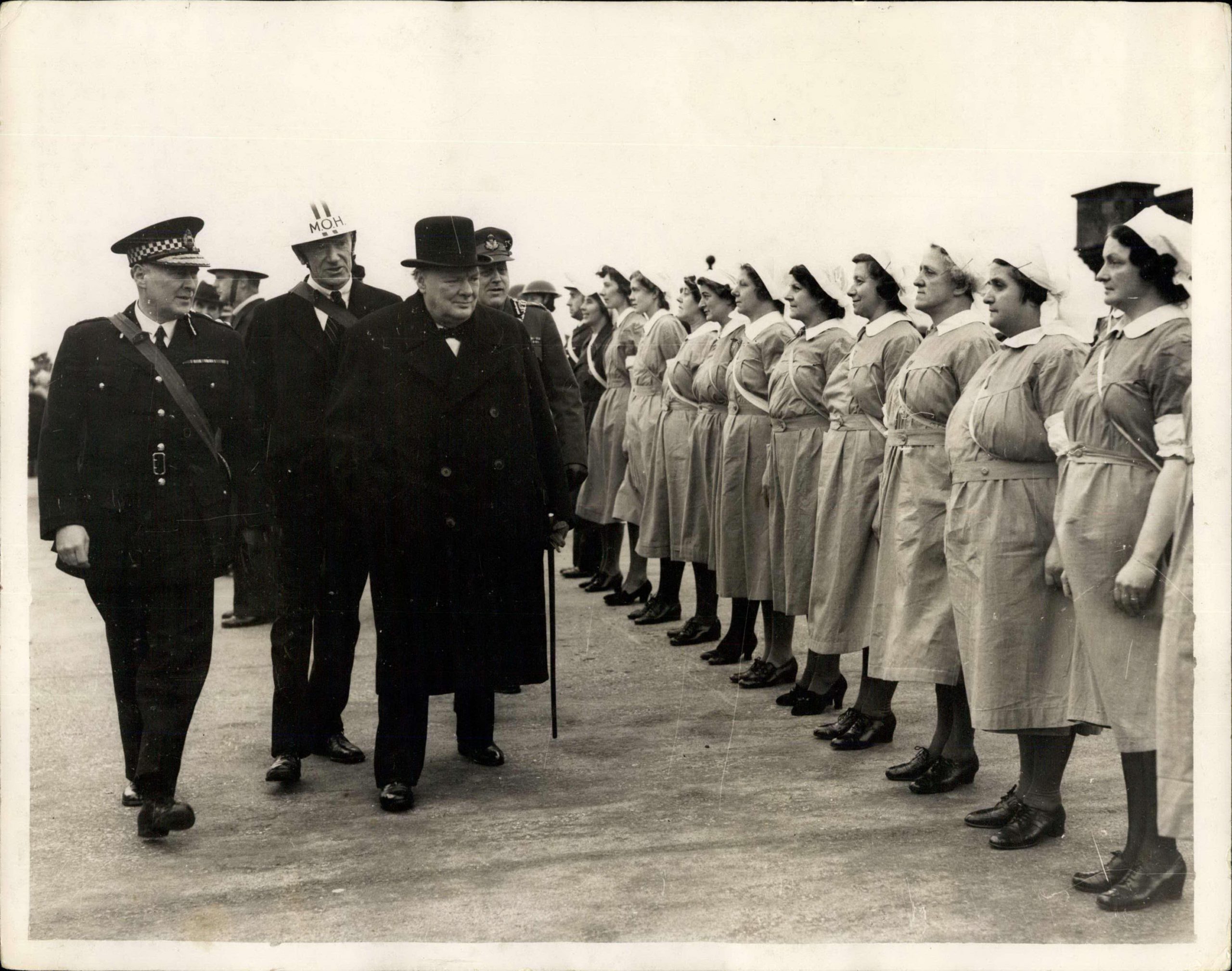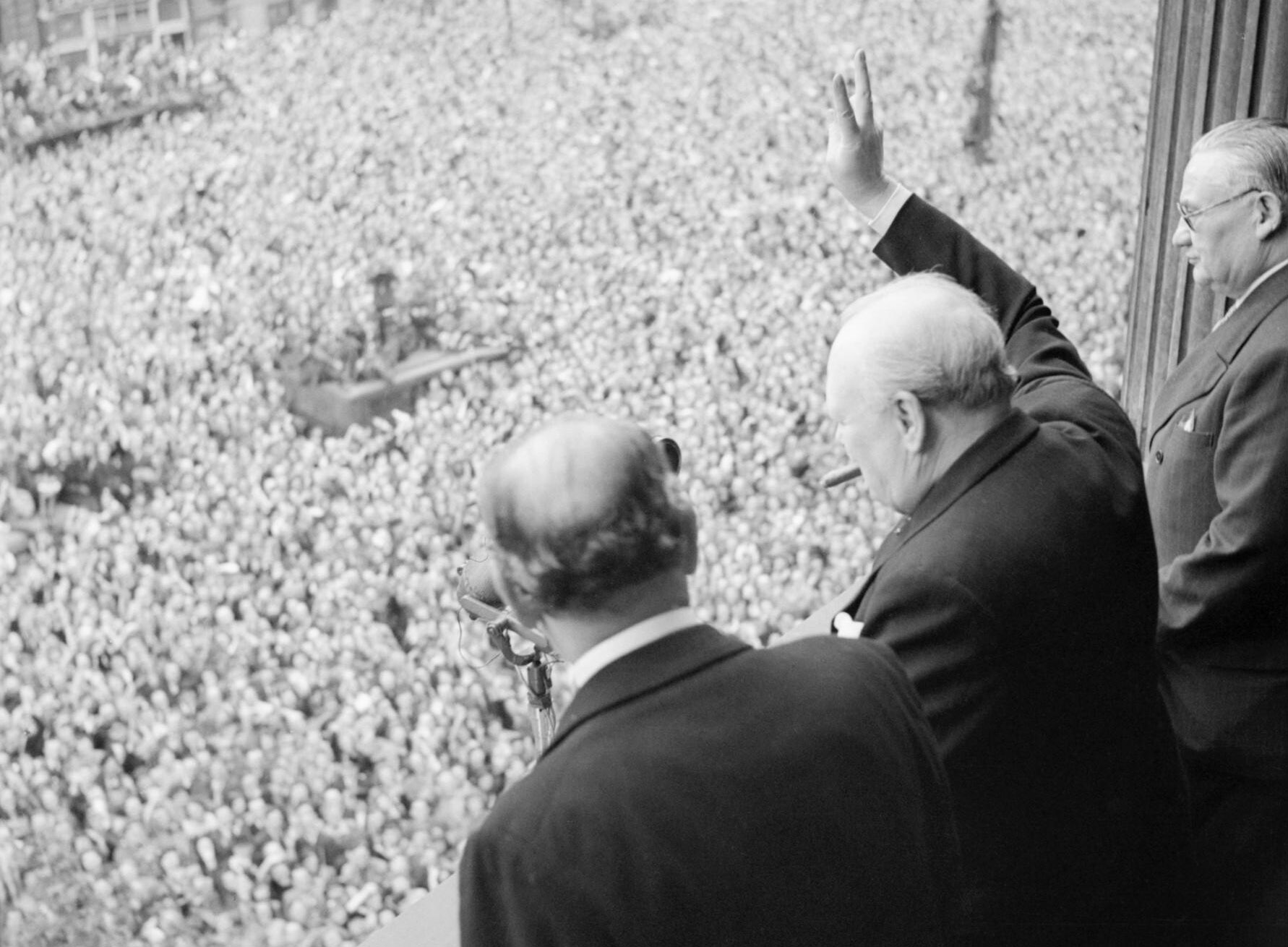Churchill became Prime Minister of a national government on 10 May 1940, the very day that Hitler invaded France and the Low Countries. The first few weeks of his premiership were marked by military disaster, as France surrendered and the British army was evacuated from Dunkirk. The United Kingdom then faced direct attack in the Battle of Britain and the Blitz.
Churchill’s famous speeches and broadcasts were carefully constructed to raise British morale while sending a message of defiance to Germany and a call for support to the United States. Churchill’s policy was ‘victory at all costs’ through ‘blood, toil, tears and sweat’. Though sixty-five in 1940, he strove to take the offensive to the enemy and worked tirelessly to assemble and maintain the Grand Alliance against fascism. With his bulldog scowl, ever-present cigar and V for Victory salute he came to personify the British war effort. This section will tell you more about his time as
If you want to learn about the Second World War in more detail, look at the Imperial War Museums’ website.
This section will tell you more about his time as leader in the Second World War.


